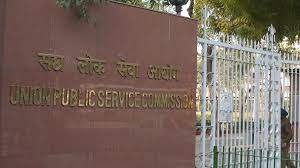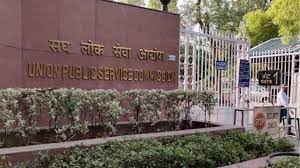UPSC Tightens Rules for Appointment of State Police Chiefs
The Union Public Service Commission (UPSC) has recently implemented stricter guidelines for the appointment of State Police Chiefs across the country. This significant development is of utmost importance to aspirants preparing for various government exams, including those for positions in teaching, police services, banking, railways, defense, and civil service positions like IAS through the Public Service Commission (PSC).

Why this News is Important:
- Enhanced Transparency: The move by UPSC to tighten rules for appointing State Police Chiefs ensures greater transparency in the selection process. Aspirants for civil services and police officer positions must understand these changes to align their preparations accordingly.
- Accountability: The new guidelines promote greater accountability in the selection of police chiefs, which is essential in maintaining law and order. Questions related to this can appear in competitive exams.
- Interstate Coordination: Understanding the updated rules is crucial for candidates aiming to join the police services or other civil services, as they will play a vital role in interstate coordination and maintaining law and order.
Historical Context:
To comprehend the significance of UPSC’s recent actions, it’s important to consider the historical context. Historically, the appointment of State Police Chiefs has often been a subject of debate and controversy. Political interference and arbitrary decisions have sometimes led to inefficiencies and compromised law and order. In this context, UPSC has now revised the appointment process to ensure that only the most qualified and deserving candidates are selected. This move is aimed at reducing political interference and ensuring the professionalism of top police officers in the states.
Key Takeaways from “UPSC Tightens Rules for Appointment of State Police Chiefs”:
| Serial Number | Key Takeaway |
|---|---|
| 1 | UPSC has implemented stricter guidelines for the appointment of State Police Chiefs. |
| 2 | This move enhances transparency and accountability in the selection process. |
| 3 | Aspirants for various government exams should stay updated on these changes. |
| 4 | The historical context reveals the need for reform in the selection process. |
| 5 | Understanding these changes is crucial for those aspiring to join the police services or civil services. |
Important FAQs for Students from this News
Q: What prompted UPSC to tighten the rules for the appointment of State Police Chiefs?
A: The need for greater transparency and accountability in the selection process led to UPSC’s decision.
Q: How will these changes affect candidates preparing for government exams?
A: Aspirants should stay updated, as questions related to these changes may appear in competitive exams.
Q: Why is historical context important in understanding these new rules?
A: Historical context helps us comprehend the need for reform and the implications of these changes.
Q: What role does political interference play in the appointment of State Police Chiefs?
A: Political interference has historically led to inefficiencies and compromises in the selection process.
Q: How will these changes impact law and order in states?
A: The changes aim to enhance professionalism among top police officers, which is vital for maintaining law and order.
Some Important Current Affairs Links


















